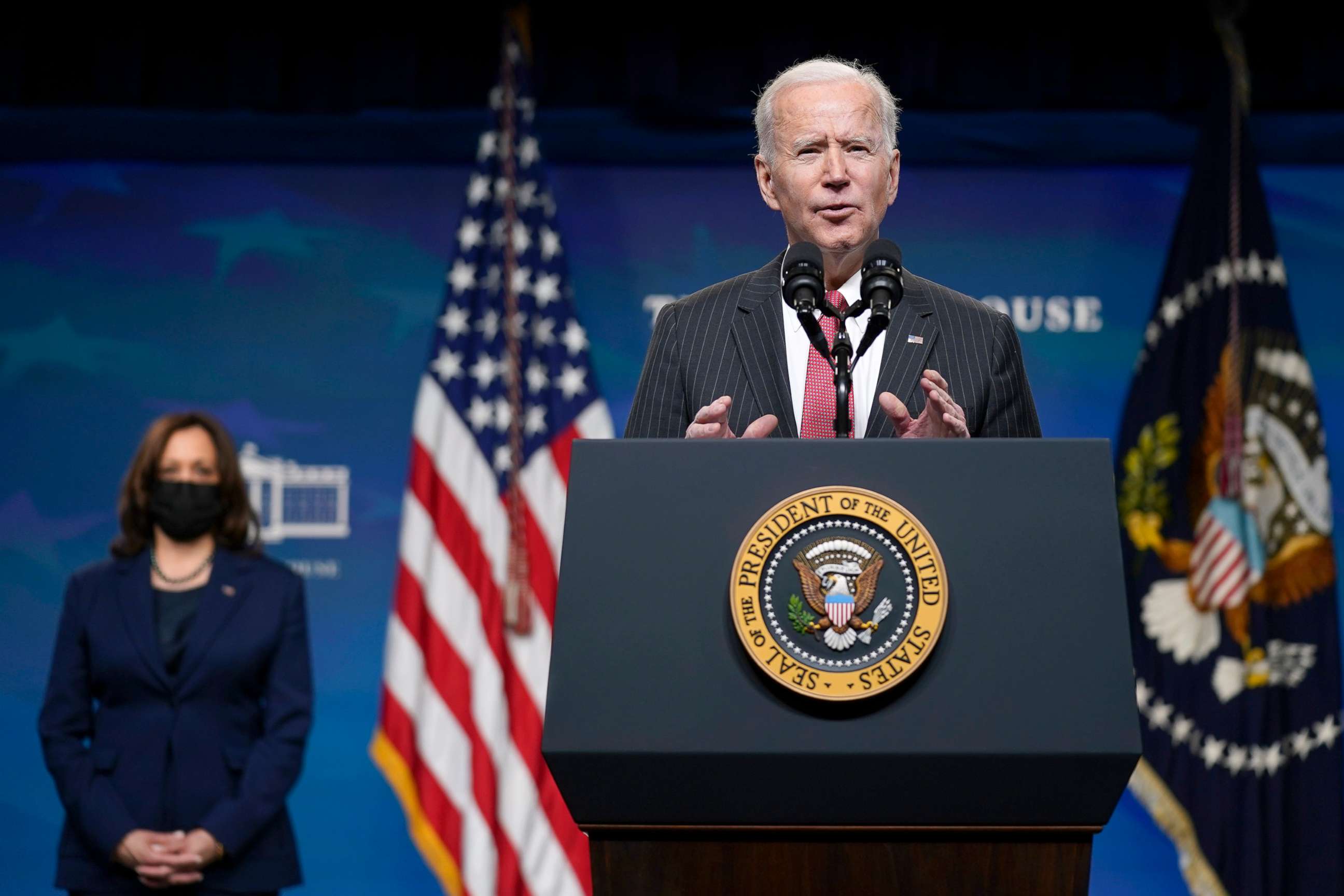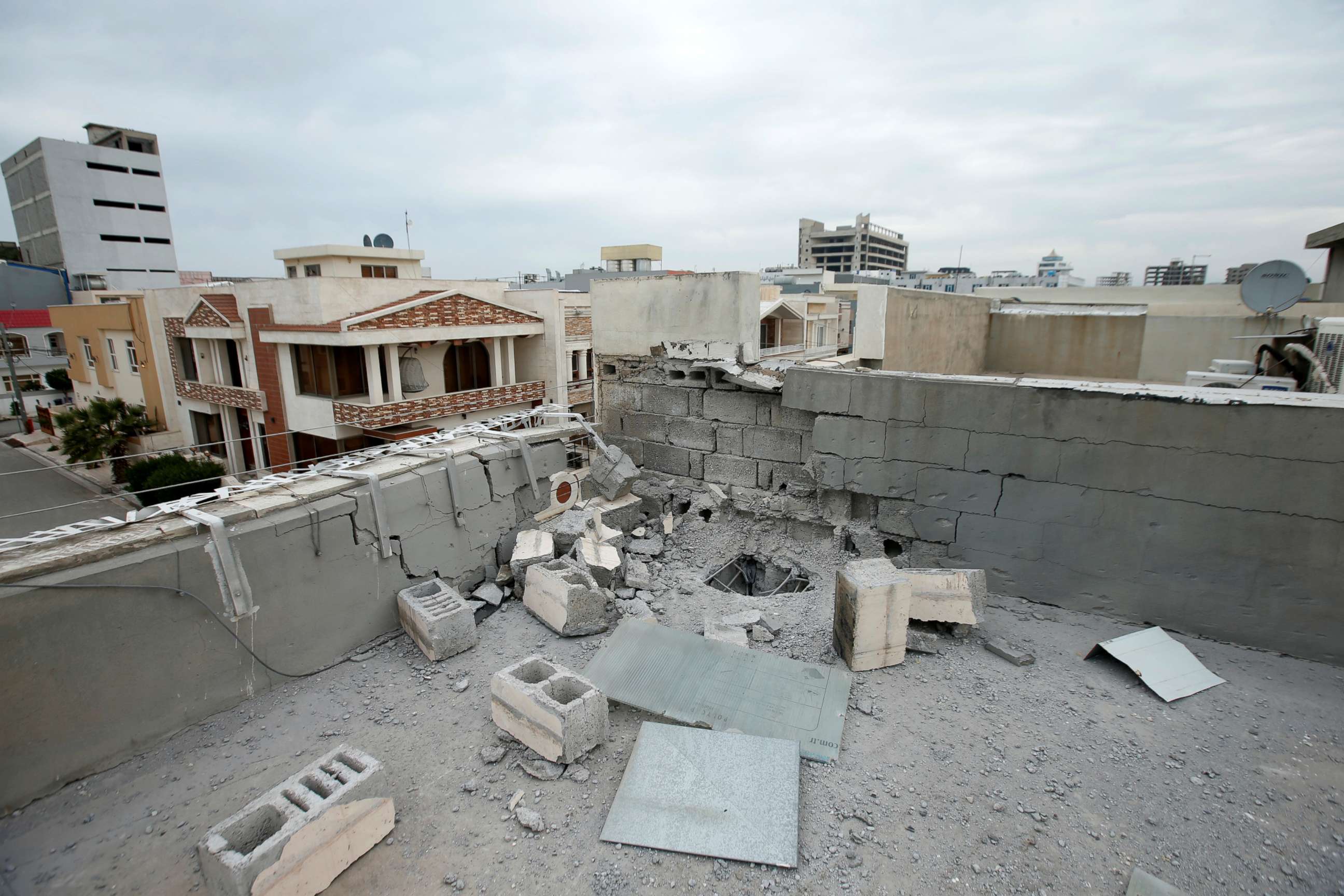US says it will 'respond' to Iraq missile attack that injured Americans at 'time and place of our choosing'
Five Americans were injured and the U.S. says it's assessing who's responsible.
The Biden administration said it is still assessing who is responsible for a rocket attack that injured five Americans and killed one foreign contractor working for the U.S. in Iraq.
But it reserves "the right to respond at the time and place of our choosing," according to the White House and State Department, amid questions about Iran's role in another attack on U.S. forces in its neighboring country.
Similar attacks during former President Donald Trump's term led to him ordering the strike that killed Iran's top military commander and pushed the region to the brink of war a little over one year ago -- making the attack another key foreign policy test in President Joe Biden's earliest days in office.
Fourteen rockets were fired toward Erbil Air Base in Iraq's Kurdistan region late Monday night, with three hitting the facilities where U.S. troops are based, according to Col. Wayne Marotto, U.S. spokesperson for the U.S.-led coalition to defeat the Islamic State.

One civilian contractor, who was not American, was killed, and nine others were injured, including one U.S. service member and four U.S. civilian contractors, Marotto said Tuesday.
"The administration reserves the right to respond in the time and manner of our choosing, but we'll wait for the attribution to be concluded first before we take any additional steps," White House press secretary Jen Psaki said.
A little-known Iraqi militia group that calls itself the Guardians of the Blood Brigade claimed credit for the attack. Such Shiite militias have ties to Iran, the region's major Shiite power, although it's at times unclear how much control the Iranian government has over their actions.
State Department spokesperson Ned Price said the administration was aware of the claim, but would not "base our conclusions solely and exclusively on the claims of a particular group." Instead, U.S. intelligence is investigating the attack and U.S. officials are working with their Iraqi and Kurdish counterparts, he said.
Secretary of State Antony Blinken spoke to Iraqi Prime Minister Mustafa Al-Kadhimi on Tuesday and Masrour Barzani on Monday night, the prime minister of the Kurds' regional government.
Notably, Price said Tuesday any U.S. response would be "in coordination with our Iraqi partners," calling it a "matter of Iraqi sovereignty" -- a break from the Trump administration.

In retaliation for an Iranian-backed militia killing a U.S. contractor in December 2019, Trump ordered the drone strike that killed Qassem Soleimani, Iran's top general, and an Iraqi militia leader just outside Baghdad airport. His administration did not consult the Iraqi government in advance, amid concerns it would leak to Soleimani, sparking protests and culminating in the non-binding vote by a majority of the Iraqi parliament last year to expel U.S. troops.
Biden and Blinken seem intent on repairing U.S. ties with the Iraqi government. Asked about responses for Monday's attack, Psaki said diplomacy would be "front and center to our engagement with our global partners around the world." Similarly, Price dismissed questions about a red line or retaliatory strikes by saying it was "premature to speak in specific terms about retaliation."
A senior Defense Department official also dodged questions about a U.S. response, telling reporters that "folks are studying hard the events that have happened in Iraq over the last 24 hours" and "are looking closely at the situation and what makes sense from a U.S. policy perspective."
But some critics say any soft lines will only embolden Iran to use its proxy forces against the U.S., especially ahead of possible negotiations over its nuclear program and more.
"Iran and its proxies are testing the seriousness of the new Biden administration while making other regional gains," said Behnam Ben Taleblu, a senior fellow at the Foundation for the Defense of Democracies, a more hawkish Washington think tank. "Cross-domain escalation has always been the name of the game for Tehran, whether it's by the Houthis, militias in Iraq, or on the nuclear file at home."
ABC News' Molly Nagle contributed to this report from the White House and Matt Seyler from the Pentagon.




